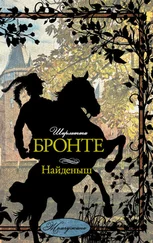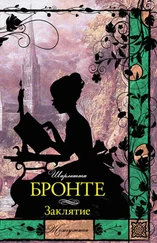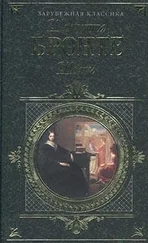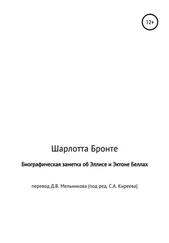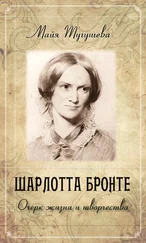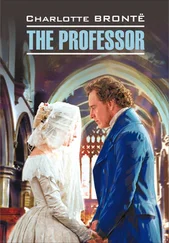Шарлотта Бронте - The Professor
Здесь есть возможность читать онлайн «Шарлотта Бронте - The Professor» — ознакомительный отрывок электронной книги совершенно бесплатно, а после прочтения отрывка купить полную версию. В некоторых случаях можно слушать аудио, скачать через торрент в формате fb2 и присутствует краткое содержание. Год выпуска: 2014, Издательство: epubBooks Classics, Жанр: Классическая проза, на английском языке. Описание произведения, (предисловие) а так же отзывы посетителей доступны на портале библиотеки ЛибКат.
- Название:The Professor
- Автор:
- Издательство:epubBooks Classics
- Жанр:
- Год:2014
- ISBN:нет данных
- Рейтинг книги:3 / 5. Голосов: 1
-
Избранное:Добавить в избранное
- Отзывы:
-
Ваша оценка:
- 60
- 1
- 2
- 3
- 4
- 5
The Professor: краткое содержание, описание и аннотация
Предлагаем к чтению аннотацию, описание, краткое содержание или предисловие (зависит от того, что написал сам автор книги «The Professor»). Если вы не нашли необходимую информацию о книге — напишите в комментариях, мы постараемся отыскать её.
The Professor — читать онлайн ознакомительный отрывок
Ниже представлен текст книги, разбитый по страницам. Система сохранения места последней прочитанной страницы, позволяет с удобством читать онлайн бесплатно книгу «The Professor», без необходимости каждый раз заново искать на чём Вы остановились. Поставьте закладку, и сможете в любой момент перейти на страницу, на которой закончили чтение.
Интервал:
Закладка:
Mr. Hunsden gave him a mastiff cub, which he called Yorke, after the donor; it grew to a superb dog, whose fierceness, however, was much modified by the companionship and caresses of its young master. He would go nowhere, do nothing without Yorke; Yorke lay at his feet while he learned his lessons, played with him in the garden, walked with him in the lane and wood, sat near his chair at meals, was fed always by his own hand, was the first thing he sought in the morning, the last he left at night. Yorke accompanied Mr. Hunsden one day to X―, and was bitten in the street by a dog in a rabid state. As soon as Hunsden had brought him home, and had informed me of the circumstance, I went into the yard and shot him where he lay licking his wound: he was dead in an instant; he had not seen me level the gun; I stood behind him. I had scarcely been ten minutes in the house, when my ear was struck with sounds of anguish: I repaired to the yard once more, for they proceeded thence. Victor was kneeling beside his dead mastiff, bent over it, embracing its bull–like neck, and lost in a passion of the wildest woe: he saw me.
"Oh, papa, I'll never forgive you! I'll never forgive you!" was his exclamation. "You shot Yorke—I saw it from the window. I never believed you could be so cruel—I can love you no more!"
I had much ado to explain to him, with a steady voice, the stern necessity of the deed; he still, with that inconsolable and bitter accent which I cannot render, but which pierced my heart, repeated—
"He might have been cured—you should have tried—you should have burnt the wound with a hot iron, or covered it with caustic. You gave no time; and now it is too late—he is dead!"
He sank fairly down on the senseless carcase; I waited patiently a long while, till his grief had somewhat exhausted him; and then I lifted him in my arms and carried him to his mother, sure that she would comfort him best. She had witnessed the whole scene from a window; she would not come out for fear of increasing my difficulties by her emotion, but she was ready now to receive him. She took him to her kind heart, and on to her gentle lap; consoled him but with her lips, her eyes, her soft embrace, for some time; and then, when his sobs diminished, told him that Yorke had felt no pain in dying, and that if he had been left to expire naturally, his end would have been most horrible; above all, she told him that I was not cruel (for that idea seemed to give exquisite pain to poor Victor), that it was my affection for Yorke and him which had made me act so, and that I was now almost heart–broken to see him weep thus bitterly.
Victor would have been no true son of his father, had these considerations, these reasons, breathed in so low, so sweet a tone—married to caresses so benign, so tender—to looks so inspired with pitying sympathy—produced no effect on him. They did produce an effect: he grew calmer, rested his face on her shoulder, and lay still in her arms. Looking up, shortly, he asked his mother to tell him over again what she had said about Yorke having suffered no pain, and my not being cruel; the balmy words being repeated, he again pillowed his cheek on her breast, and was again tranquil.
Some hours after, he came to me in my library, asked if I forgave him, and desired to be reconciled. I drew the lad to my side, and there I kept him a good while, and had much talk with him, in the course of which he disclosed many points of feeling and thought I approved of in my son. I found, it is true, few elements of the "good fellow" or the "fine fellow" in him; scant sparkles of the spirit which loves to flash over the wine cup, or which kindles the passions to a destroying fire; but I saw in the soil of his heart healthy and swelling germs of compassion, affection, fidelity. I discovered in the garden of his intellect a rich growth of wholesome principles—reason, justice, moral courage, promised, if not blighted, a fertile bearing. So I bestowed on his large forehead, and on his cheek—still pale with tears—a proud and contented kiss, and sent him away comforted. Yet I saw him the next day laid on the mound under which Yorke had been buried, his face covered with his hands; he was melancholy for some weeks, and more than a year elapsed before he would listen to any proposal of having another dog.
Victor learns fast. He must soon go to Eton, where, I suspect, his first year or two will be utter wretchedness: to leave me, his mother, and his home, will give his heart an agonized wrench; then, the fagging will not suit him—but emulation, thirst after knowledge, the glory of success, will stir and reward him in time. Meantime, I feel in myself a strong repugnance to fix the hour which will uproot my sole olive branch, and transplant it far from me; and, when I speak to Frances on the subject, I am heard with a kind of patient pain, as though I alluded to some fearful operation, at which her nature shudders, but from which her fortitude will not permit her to recoil. The step must, however, be taken, and it shall be; for, though Frances will not make a milksop of her son, she will accustom him to a style of treatment, a forbearance, a congenial tenderness, he will meet with from none else. She sees, as I also see, a something in Victor's temper—a kind of electrical ardour and power—which emits, now and then, ominous sparks; Hunsden calls it his spirit, and says it should not be curbed. I call it the leaven of the offending Adam, and consider that it should be, if not WHIPPED out of him, at least soundly disciplined; and that he will be cheap of any amount of either bodily or mental suffering which will ground him radically in the art of self–control. Frances gives this something in her son's marked character no name; but when it appears in the grinding of his teeth, in the glittering of his eye, in the fierce revolt of feeling against disappointment, mischance, sudden sorrow, or supposed injustice, she folds him to her breast, or takes him to walk with her alone in the wood; then she reasons with him like any philosopher, and to reason Victor is ever accessible; then she looks at him with eyes of love, and by love Victor can be infallibly subjugated; but will reason or love be the weapons with which in future the world will meet his violence? Oh, no! for that flash in his black eye—for that cloud on his bony brow—for that compression of his statuesque lips, the lad will some day get blows instead of blandishments—kicks instead of kisses; then for the fit of mute fury which will sicken his body and madden his soul; then for the ordeal of merited and salutary suffering, out of which he will come (I trust) a wiser and a better man.
I see him now; he stands by Hunsden, who is seated on the lawn under the beech; Hunsden's hand rests on the boy's collar, and he is instilling God knows what principles into his ear. Victor looks well just now, for he listens with a sort of smiling interest; he never looks so like his mother as when he smiles—pity the sunshine breaks out so rarely! Victor has a preference for Hunsden, full as strong as I deem desirable, being considerably more potent, decided, and indiscriminating, than any I ever entertained for that personage myself. Frances, too, regards it with a sort of unexpressed anxiety; while her son leans on Hunsden's knee, or rests against his shoulder, she roves with restless movement round, like a dove guarding its young from a hovering hawk; she says she wishes Hunsden had children of his own, for then he would better know the danger of inciting their pride end indulging their foibles.
Frances approaches my library window; puts aside the honeysuckle which half covers it, and tells me tea is ready; seeing that I continue busy she enters the room, comes near me quietly, and puts her hand on my shoulder.
"Monsieur est trop applique."
"I shall soon have done."
Читать дальшеИнтервал:
Закладка:
Похожие книги на «The Professor»
Представляем Вашему вниманию похожие книги на «The Professor» списком для выбора. Мы отобрали схожую по названию и смыслу литературу в надежде предоставить читателям больше вариантов отыскать новые, интересные, ещё непрочитанные произведения.
Обсуждение, отзывы о книге «The Professor» и просто собственные мнения читателей. Оставьте ваши комментарии, напишите, что Вы думаете о произведении, его смысле или главных героях. Укажите что конкретно понравилось, а что нет, и почему Вы так считаете.


